Related Research Articles

Anthropology is the scientific study of humanity, concerned with human behavior, human biology, cultures, societies, and linguistics, in both the present and past, including past human species. Social anthropology studies patterns of behavior, while cultural anthropology studies cultural meaning, including norms and values. A portmanteau term sociocultural anthropology is commonly used today. Linguistic anthropology studies how language influences social life. Biological or physical anthropology studies the biological development of humans.
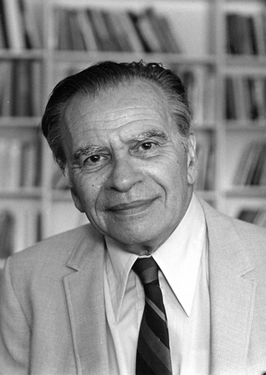
Joseph Harold Greenberg was an American linguist, known mainly for his work concerning linguistic typology and the genetic classification of languages.
Turan is a historical region in Central Asia. The term is of Iranian origin and may refer to a particular prehistoric human settlement, a historic geographical region, or a culture. The original Turanians were an Iranian tribe of the Avestan age.

Anthropology of religion is the study of religion in relation to other social institutions, and the comparison of religious beliefs and practices across cultures.
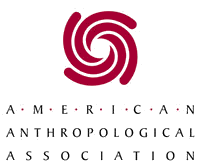
The American Anthropological Association (AAA) is an organization of scholars and practitioners in the field of anthropology. With 10,000 members, the association, based in Arlington, Virginia, includes archaeologists, cultural anthropologists, biological anthropologists, linguistic anthropologists, linguists, medical anthropologists and applied anthropologists in universities and colleges, research institutions, government agencies, museums, corporations and non-profits throughout the world. The AAA publishes more than 20 peer-reviewed scholarly journals, available in print and online through AnthroSource. The AAA was founded in 1902.
In social anthropology, matrilocal residence or matrilocality is the societal system in which a married couple resides with or near the wife's parents.
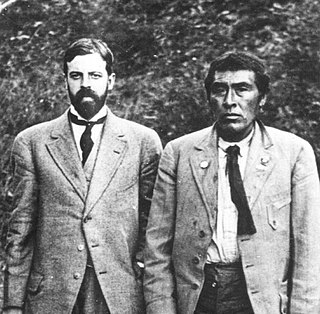
Alfred Louis Kroeber was an American cultural anthropologist. He received his PhD under Franz Boas at Columbia University in 1901, the first doctorate in anthropology awarded by Columbia. He was also the first professor appointed to the Department of Anthropology at the University of California, Berkeley. He played an integral role in the early days of its Museum of Anthropology, where he served as director from 1909 through 1947. Kroeber provided detailed information about Ishi, the last surviving member of the Yahi people, whom he studied over a period of years. He was the father of the acclaimed novelist, poet, and writer of short stories Ursula K. Le Guin.

Paulo Reglus Neves Freire was a Brazilian educator and philosopher who was a leading advocate of critical pedagogy. His influential work Pedagogy of the Oppressed is generally considered one of the foundational texts of the critical pedagogy movement, and was the third most cited book in the social sciences as of 2016 according to Google Scholar.
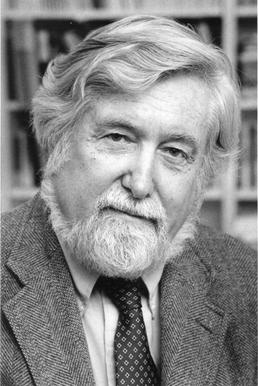
Clifford James Geertz was an American anthropologist who is remembered mostly for his strong support for and influence on the practice of symbolic anthropology and who was considered "for three decades... the single most influential cultural anthropologist in the United States." He served until his death as professor emeritus at the Institute for Advanced Study, Princeton.

Material culture is the aspect of social reality grounded in the objects and architecture that surround people. It includes the usage, consumption, creation, and trade of objects as well as the behaviors, norms, and rituals that the objects create or take part in. Some scholars also include other intangible phenomena that include sound, smell and events, while some even consider language and media as part of it. The term is most commonly used in archaeological and anthropological studies, to define material or artifacts as they are understood in relation to specific cultural and historic contexts, communities, and belief systems. Material culture can be described as any object that humans use to survive, define social relationships, represent facets of identity, or benefit peoples' state of mind, social, or economic standing. Material culture is contrasting to symbolic culture, which includes nonmaterial symbols, beliefs, and social constructs.

Philhellenism was an intellectual movement prominent mostly at the turn of the 19th century. It contributed to the sentiments that led Europeans such as Lord Byron and Charles Nicolas Fabvier to advocate for Greek independence from the Ottoman Empire.
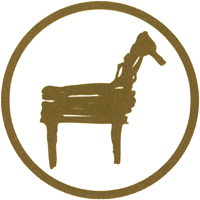
Ethnobiology is the scientific study of the way living things are treated or used by different human cultures. It studies the dynamic relationships between people, biota, and environments, from the distant past to the immediate present.
Gloria Jean Ladson-Billings is an American pedagogical theorist and teacher educator known for her work in the fields of culturally relevant pedagogy and critical race theory, and the pernicious effects of systemic racism and economic inequality on educational opportunities. Her book The Dreamkeepers: Successful Teachers of African-American Children is a significant text in the field of education. Ladson-Billings is Professor Emerita and formerly the Kellner Family Distinguished Professor of Urban Education in the Department of Curriculum and Instruction at the University of Wisconsin–Madison.

Karl Andreas Taube is an American Mesoamericanist, Mayanist, iconographer and ethnohistorian, known for his publications and research into the pre-Columbian cultures of Mesoamerica and the American Southwest. He is Distinguished Professor of Anthropology at the College of Humanities, Arts, and Social Sciences, University of California, Riverside. In 2008 he was named the College of Humanities, Arts, and Social Sciences distinguished lecturer.
Ross Hassig is an American historical anthropologist specializing in Mesoamerican studies, particularly the Aztec culture. His focus is often on the description of practical infrastructure in Mesoamerican societies. He is the author of several influential books, among them: Time, History, and Belief in Aztec and Colonial Mexico; Aztec Warfare: Imperial Expansion and Political Control; and Trade, Tribute, and Transportation: The Sixteenth-Century Political Economy of the Valley of Mexico.
Beatrice Medicine was a scholar, anthropologist, and educator known for her work in the fields of Indigenous languages, cultures, and history. Medicine spent much of her life researching, teaching, and serving Native communities, primarily in the fields of bilingual education, addiction and recovery, mental health, tribal identity, and women's, children's, and LGBT community issues.

Woman, Culture, and Society, first published in 1974, is a book consisting of 16 papers contributed by female authors and an introduction by the editors Michelle Zimbalist Rosaldo and Louise Lamphere. On the heels of the 1960s feminist movement, this book challenged anthropology's status quo of viewing studied cultures from a male perspective while diminishing female perspectives, even considering women as comparatively imperceptible. It is considered to be a pioneering work.
Marie Margaret Keesing (née Martin) was an anthropologist and educator with strong ties to the Pacific. With a degree in anthropology from the University of New Zealand, she spent most of her working life in the United States, where she worked closely with her husband, a fellow New Zealander and renowned anthropologist Felix Maxwell Keesing. She published a number of works, and co-authored several significant books with her husband, including Taming Philippine Headhunters: a Study of Government and of Cultural Change in Northern Luzon (1934) and Elite Communication in Samoa: A Study of Leadership (1956).
Felix M. Keesing was a New Zealand-born anthropologist who specialized in the study of the Philippine Islands and the South Pacific. He came to the United States in the 1940s and taught at Stanford University, California, 1942–1961.
Francis L. K. Hsu was a China-born American anthropologist, one of the founders of psychological anthropology. He was president of the American Anthropological Association from 1977 to 1978.
References
- 1 2 Trueba, Enrique T. (2004). The new Americans. Rowman & Littlefield. p. 119. ISBN 978-0-7425-2884-0.
- ↑ McDermott, Ray (June 2008). "Reading George Spindler". Anthropology & Education Quarterly. Blackwell Publishing. 39 (2): 117–126. doi:10.1111/j.1548-1492.2008.00011.x.
- 1 2 Turan, Julia. "George Spindler, Stanford professor emeritus of anthropology and education, has died at 94". news.stanford.edu. Retrieved 16 August 2017.
- ↑ Spindler, George D. (October 2000). "The Four Careers of George and Louise Spindler: 1948-2000". Annual Review of Anthropology. 29 (1): xv–xxxviii. doi:10.1146/annurev.anthro.29.1.00. ISSN 0084-6570 . Retrieved 27 March 2023.
- ↑ "Special Publications of the AAA: A Brief History". Aaanet.org. 2011-07-27. Archived from the original on 2012-09-22. Retrieved 2012-08-13.